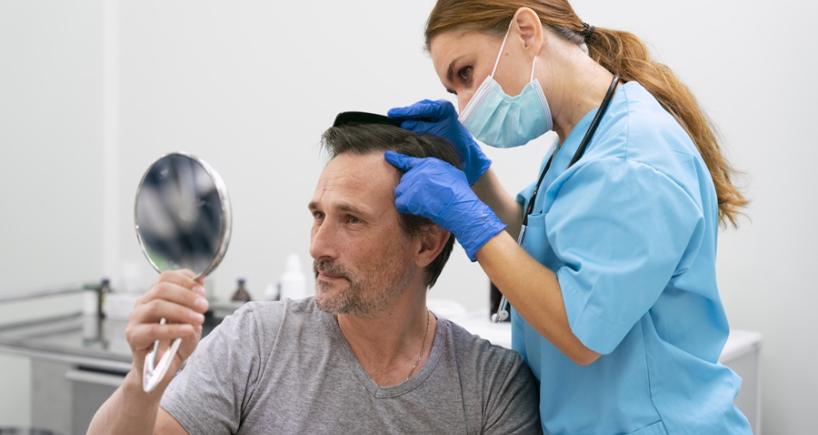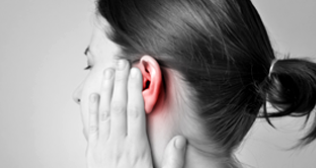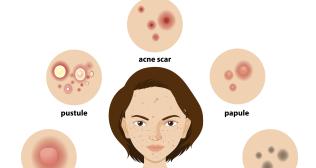
Understanding Male Hair Loss: Alopecia Causes and Treatment
Introduction
While grooming in front of a mirror for a special occasion, noticing a receding hairline on the top of the head can make anyone anxious. According to the American Academy of Dermatology, an individual can lose between 50 and 100 strands of hair a day. This is part of the typical hair growth cycle. Hair will grow for certain years, then rest for a few months, fall, and regenerate. It only becomes concerning when too much hair loss results in baldness.
Analyzing the Difference Between Regular Hair Fall and Hair Loss!
Differentiating between regular hair fall and pathological hair loss is critical for relevant management.
Hair loss, characterized by hair loss during usual grooming or washing, is a natural physiological phenomenon. However, when hair loss surpasses the normal range and leads to visible thinning or bald patches, it may indicate an underlying issue.
Additionally, hair thinning usually happens gradually over time, whereas pathological hair loss, often linked with conditions like male-pattern baldness (or alopecia), manifests as excessive shedding or bald patches on the scalp. Excessive stimulation of hair follicles by androgens may lead to a shorter growth period, resulting in shorter and thinner hair strands. The growth of new hair to substitute lost strands is also delayed. Cumulatively, these modifications lead to thinning or loss of hair.
Deciphering the Causes of Hair Loss in Men
Hormonal disruptions in men can span from a low level of imbalance to an elevated level. Studies show that hair loss, particularly in men, is associated with hormones known as androgens, particularly an androgen called dihydrotestosterone (DHT).
More Than Just a Sign of Aging:
Nearly everyone faces hair loss with aging. The rate of hair growth also declines. Hair strands become smaller and have low levels of pigment. Many hair follicles stop producing new hair. Men may start displaying signs of baldness by the time they are 30 years old. Many men are nearly bald by the time they reach the age of 60. A type of baldness linked to the normal function of the male hormone testosterone is male-pattern baldness. Hair loss may occur at the temples or the top of the head.
Heredity:
Individuals whose parents or grandparents have baldness are required to prepare themselves to be a part of it, as the most prevalent cause of male baldness is genetic dysfunction, which passes from generation to generation.
Use of Medicines:
Anti-depressants, antibiotics, antipsychotics, anti-anxiety drugs, and chemo or radiotherapy succeeded by cancer can lead to baldness.
Food Choices:
Any food item with an elevated mercury level eventually causes hair loss in men. A diet rich in SFAs and MUFAs can increase testosterone levels, potentially elevating the levels of DHT, an androgen associated with alopecia. Also, oily foods can make the scalp greasy and may lead to obstruction of pores and miniaturization of hair follicles.
Treatment for Hair Loss in Men
In desperation, hair loss sufferers try every possible remedy, such as shampoos and oils recommended by loved ones or advertised as hair loss treatments. Effective clinical treatment modalities include:
Medicines:
Common medications include minoxidil and finasteride. Minoxidil is an over-the-counter medication available as a topical lotion, which is intended to decrease hair loss and thickening of existing hairs. Finasteride is a prescribed orally administered medicine, which is intended to reduce the progression of hair loss of hair and speed up hair growth. These medicines are found to be helpful in hair loss, but the results stay questionable in terms of permanency. It has also been found that the results relapse after halting the medicines.
Laser Therapy:
If having minoxidil every day or taking medicine to treat hair loss seems less appealing to anyone, laser therapy may be a viable alternative.
Platelet-Rich Plasma (PRP):
Research has shown this to be an effective and safe approach to manage hair loss. PRP comprises drawing a small quantity of blood, placing blood into a machine that segregates it into different portions, and then injecting one portion of blood (the plasma) into the portion with hair loss.
Hair Transplantation:
It aims to restore a more youthful look for those distressed by hair loss, especially androgenetic alopecia.
FUT/STRIP (Follicular Unit Transplant Technique):
In this approach, a thin portion of healthy hair-bearing skin, from a “permanent” portion of the scalp, is harvested and transplanted to a portion of hair loss (“non-permanent area”).
Follicular unit extraction (FUE):
It is a hair transplantation method that employs tiny punches (0.8–1 mm in diameter) to extract the follicular units (FUs).
Robot-Assisted FU Extraction:
Currently, robotic devices have been devised with potential benefits of more precise and faster graft harvesting, reduced FU transection rate, and elevated implantation precision at the recipient site. The robot provides a promising technique to maximize hair transplantation outcomes.
Holding Hands: Ways to Counsel a Hair Loss Patient
In certain instances, hair loss is stubborn and may require trying distinct modalities, such as hair transplant surgery, before analyzing the one that may work.
No one line of treatment will work for everyone, not even for two patients with a similar type of hair loss.
Even after successful hair transplantation, the entire growth may need six months to 1 year, during which period the patient may be required to use concealers.
In patients with progressive loss of hair with restricted donor hair, there may be a need to utilize an adjuvant concealer along with hair transplantation.
Many men wear wigs or hats to cover the bald portion of their heads. In case of excessive hair loss, individuals should seek medical advice as soon as possible!
Popular Searches :
Hospitals: Cancer Hospital in Delhi | Best Heart Hospital in Delhi | Hospital in Amritsar | Hospital in Ludhiana | Hospitals in Mohali | Hospital in Faridabad | Hospitals in Gurgaon | Best Hospital in Jaipur | Hospitals in Greater Noida | Hospitals in Noida | Best Kidney Hospital in Kolkata | Best Hospital in Kolkata | Hospitals in Rajajinagar Bangalore | Hospitals in Richmond Road Bangalore | Hospitals in Nagarbhavi Bangalore | Hospital in Kalyan West | Hospitals in Mulund | Best Hospital in India | Gastroenterologist in Jaipur | Cardiology Hospital in India
Doctors: Dr. Rana Patir | Dr. Rajesh Benny | Dr. Rahul Bhargava | Dr. Jayant Arora | Dr. Anoop Misra | Dr. Manu Tiwari | Dr. Praveer Agarwal | Dr. Arup Ratan Dutta | Dr. Meenakshi Ahuja | Dr. Anoop Jhurani | Dr. Shivaji Basu | Dr. Subhash Jangid | Dr. Atul Mathur | Dr. Gurinder Bedi | Dr. Monika Wadhawan | Dr. Debasis Datta | Dr. Shrinivas Narayan | Dr. Praveen Gupta | Dr. Nitin Jha | Dr. Raghu Nagaraj | Dr. Ashok Seth | Dr. Sandeep Vaishya | Dr. Atul Mishra | Dr. Z S Meharwal | Dr. Ajay Bhalla | Dr. Atul Kumar Mittal | Dr. Arvind Kumar Khurana | Dr. Narayan Hulse | Dr. Samir Parikh | Dr. Amit Javed | Dr. Narayan Banerjee | Dr. Bimlesh Dhar Pandey | Dr. Arghya Chattopadhyay | Dr. G.R. Vijay Kumar | Dr Ashok Gupta | Dr. Gourdas Choudhuri | Dr. Sushrut Singh | Dr. N.C. Krishnamani | Dr. Atampreet Singh | Dr. Vivek Jawali | Dr. Sanjeev Gulati | Dr. Amite Pankaj Aggarwal | Dr. Ajay Kaul | Dr. Sunita Varma | Dr. Manoj Kumar Goel | Dr. R Muralidharan | Dr. Sushmita Roychowdhury | Dr. T.S. MAHANT | Dr. UDIPTA RAY | Dr. Aparna Jaswal | Dr. Ravul Jindal | Dr. Savyasachi Saxena | Dr. Ajay Kumar Kriplani | Dr. Nitesh Rohatgi | Dr. Anupam Jindal |
Specialities: Heart Lung Transplant | Orthopedic | Cardiology Interventional | Obstetrics & Gynaecology | Onco Radiation | Neurosurgery |


















